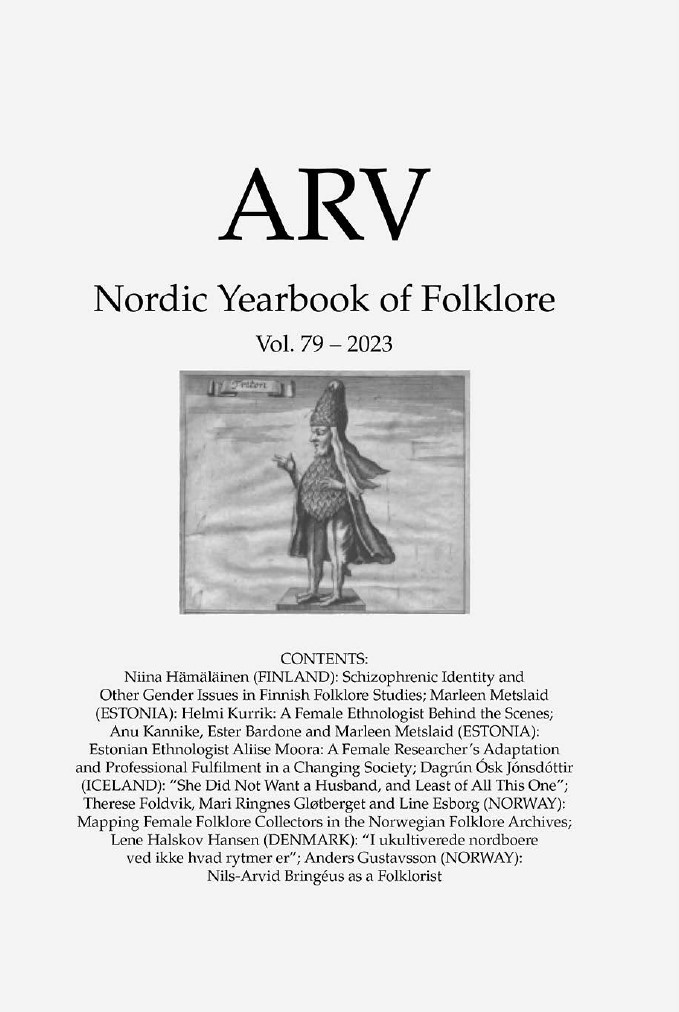Schizophrenic Identity and Other Gender Issues in Finnish Folklore Studies
DOI:
https://doi.org/10.61897/arv.v79i.23080Keywords:
gender, folklore, trivializationAbstract
This article gives an overview of two early female folklorists and one folklore collector from the mid nineteenth to the mid twentieth century. The aim is to reveal the symbolic violence and rejection the three female scholars underwent through the use of the term trivialization. I have chosen Charlotta Europaeus, Helmi Helminen and Elsa Enäjärvi as examples because of their early appearance in the field. These cases illustrate to what extent gender, together with presumptions of the gender roles and scientific norms of the era, affected their scholarly work. Charlotta Europaeus, Helmi Helminen and Elsa Enäjärvi were fascinated by women’s life, female genres and intimate spheres of culture, but in order to succeed they needed male supporters and adaptation of male-dominated methods. Above all, the collecting and scientific work of the early female scholars concretely elucidates the female as dismissed and further, how the suppression of female gender and folklore is embedded in documentation and textualization practices.
Downloads
Published
How to Cite
Issue
Section
License
In Volume 81 and subsequent volumes, authors of content published in ARV retain copyright to their works and articles are published under the terms of a Creative Commons CC BY license.
Content in Volumes 1 – 80 was published without a Creative Commons license, and the copyright for this content is held by Kgl. Gustav Adolfs Akademien.
View the journal's full Open Access Policy.




